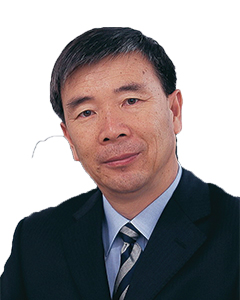Thenews that the trademark “Moyanzui” was worth millions spread like wildfire after Mo Yan had won the Nobel Prize for Literature, revealing the value of trademarks in modern society.
This explains why the phenomenon of the malicious pirate registration of trademarks is becoming ever more prevalent in China – it has become the best way for certain people to “lawfully” achieve riches and has given birth to professional pirate registrants (both human and corporate), thereby giving rise to an industry benefit chain that integrates pirate registration of trademarks, speculation and sale at high prices.

王亚东
Wang Yadong
润明律师事务所
执行合伙人
Executive Partner
Run Ming Law Office
The gradual “maturation” of this industry chain has intensified the phenomenon of the pirate registration of trademarks. News of 522 incidents of the pirate registration of famous foreign trademarks, among them Hermes, Dunhill, etc., has again caused “malicious pirate registration of trademarks” and the “issue of trademark protection” to become the focus of public attention.
In response to the problem of malicious pirate registrations, the Supreme People’s Court initiated the drafting of the Opinions on Several Issues Concerning the Enhancement of the Protection of Well Known Trademarks, the Halting of Malicious Pirate Registrations, Etc., in 2012, proving that the judicial authorities will be keeping a close eye on the phenomenon of “malicious pirate registration” and will strengthen protection of trademarks.
In conjunction with the issuance of the opinions, the First Intermediate People’s Court of Beijing Municipality (the court with jurisdiction over administrative cases involving the granting and confirmation of rights) established a special task group to study the issues of protecting well known trademarks and halting the malicious pirate registration of trademarks, and in November 2012, held a briefing on “strengthening the judicial protection of well known trademarks”, at which a large number of well known trademarks were recognised in one fell swoop.

Hu Cuiqin
润明律师事务所
律师
Lawyer
Run Ming Law Office
Reasons for pirate registration
It is widely believed that the main reasons are as follows:
- pursuant to the principle of first-to-file implemented in accordance with the Trademark Law, where an application is made for an identical or similar trademark for an identical or similar product, registration and protection is granted to the trademark applied for first, which provides the legal space for malicious pirate registrations;
- as the current Trademark Law does not define the concept of malicious pirate registration, the result has been different perspectives on malicious pirate registration in practice, presenting many difficulties for findings of such registration. Furthermore, the penalties imposed on malicious pirate registrants under the current legal system lean toward lenience – the only legal consequence a pirate registrant will bear is cancellation of the pirated trademark; in a situation where huge rewards are possible with little input and the risks approach zero, malicious pirate registration becomes inevitable;
- there remains a great deal of loopholes and ambiguity in the provisions on malicious pirate registration in the current Trademark Law, resulting in a relatively large gap between the application and understanding of regulations in the course of law enforcement.
Improvement of the system
We believe that, while respecting China’s basic trademark system of first-to-file, the legal system for limiting the malicious pirate registration of trademarks can be further improved as follows:
- adding the obligation to provide proof of use of a trademark, e.g. requiring a trademark registrant to provide proof of use of the trademark during the period between the preliminary examination of the trademark and the expiration of the opposition period, failing which, registration of the trademark would be denied even if no one filed an objection;
- in articles limiting the pirate registration of trademarks, clarifying the criteria for defining malicious pirate registration; additionally, specifying that once the actions of the applicant or the registrant are found, in a trademark opposition or dispute case, to constitute malicious pirate registration, the applicant or registrant be required to bear the costs of the other party in instituting the procedure, thus increasing the cost of malicious pirate registration;
- inserting corresponding provisions in the Law Against Unfair Competition to make up for the insufficiencies in the provisions of the Trademark Law on the limitation of malicious pirate registration.
Stopping malicious pirate registration at the source through legislation is at the root of resolving the problem. Based on the Draft Amendments to the Trademark Law deliberated on at the recent 30th Session of the Standing Committee of the 11th National People’s Congress, one can see the efforts made by the legislative body to limit malicious pirate registrations:
- the principle of good faith has been added to the general principles of the draft, specifying that the registration and use of trademarks should be established on the basis of operating in good faith and respect of prior rights;
- with a view to preventing the preemptive registration of a trademark used first by another, the draft specifies that where a contractual, business or other relationship with another exists, giving knowledge of the existence of such other’s trademark, and an application is made to register the trademark used first by such other, registration will be denied;
- with respect to the phenomenon, in practice, of “free riding on a famous brand” where another’s trademark is used as an enterprise trade name, the draft specifies that where the use of another’s well known trademark or registered trademark as the trade name portion of an enterprise name misleads the public, constituting unfair competition, the matter will be handled in accordance with the Law Against Unfair Competition;
- crafting of pertinent provisions to strengthen the oversight of trademark agencies so as to guard against their serving as a channel for malicious pirate registrations.
The pervasiveness of the malicious pirate registration of trademarks is driven by money, but there are also systemic causes that contribute to its out-of-control spread. Whether the problem of malicious pirate registration can be solved through legislation remains to be seen.
中国北京市朝阳区建国门外大街甲12号
新华保险大厦1806室
邮编:100022
Suite 1806, NCI Tower
12A Jianguomenwai Avenue
Chaoyang District, Beijing 100022, China
电话 Tel: +8610 65693511
传真 Fax: +8610 65693512/13
www.runminglaw.com
电子信箱 E-mail:
wangyd@runminglaw.com
hucq@runminglaw.com






















